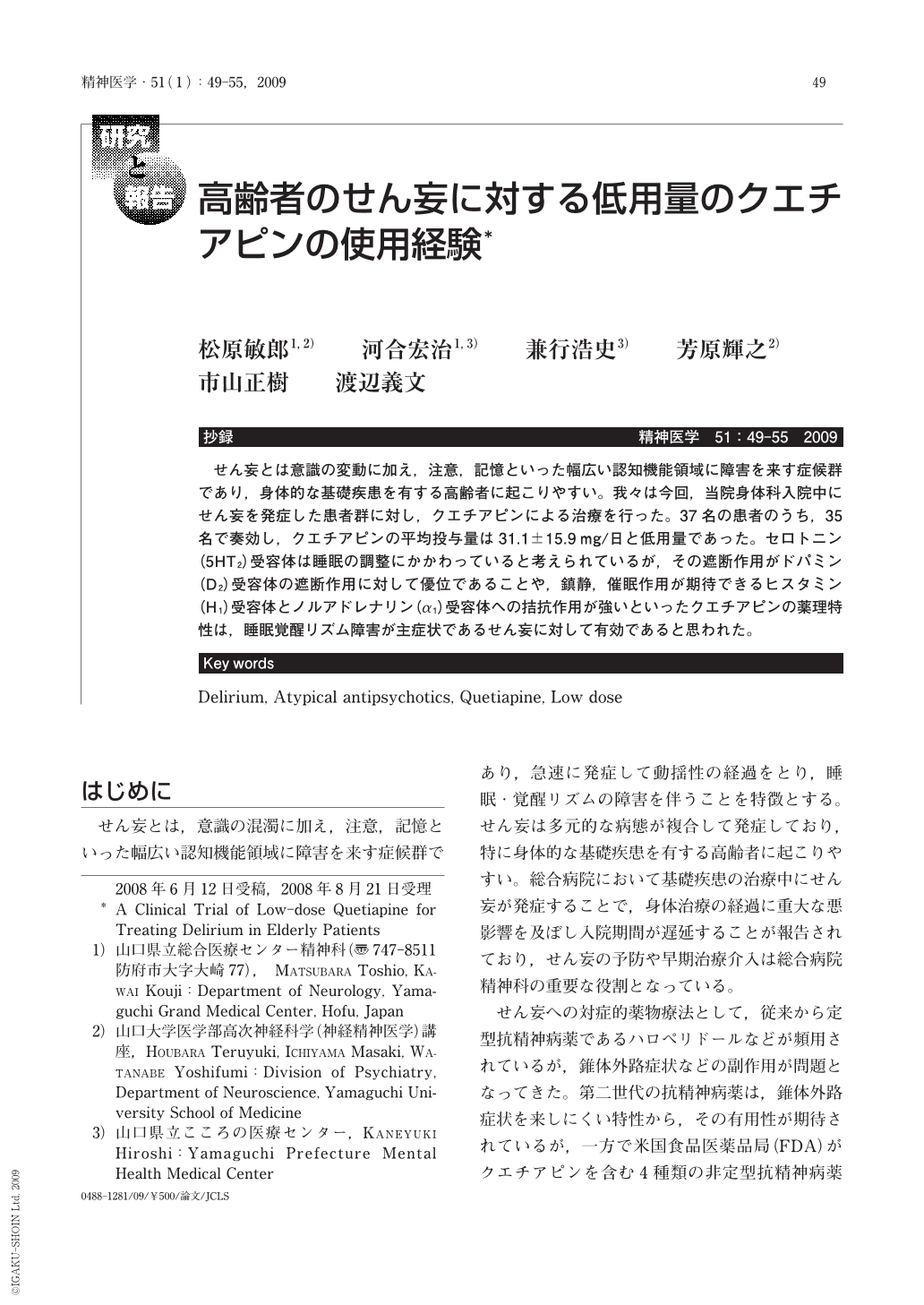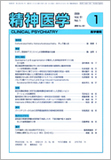Japanese
English
- 有料閲覧
- Abstract 文献概要
- 1ページ目 Look Inside
- 参考文献 Reference
抄録
せん妄とは意識の変動に加え,注意,記憶といった幅広い認知機能領域に障害を来す症候群であり,身体的な基礎疾患を有する高齢者に起こりやすい。我々は今回,当院身体科入院中にせん妄を発症した患者群に対し,クエチアピンによる治療を行った。37名の患者のうち,35名で奏効し,クエチアピンの平均投与量は31.1±15.9mg/日と低用量であった。セロトニン(5HT2)受容体は睡眠の調整にかかわっていると考えられているが,その遮断作用がドパミン(D2)受容体の遮断作用に対して優位であることや,鎮静,催眠作用が期待できるヒスタミン(H1)受容体とノルアドレナリン(α1)受容体への拮抗作用が強いといったクエチアピンの薬理特性は,睡眠覚醒リズム障害が主症状であるせん妄に対して有効であると思われた。
Delirium is a psychiatric syndrome that mostly affects elderly peaple, and is characterized by fluctuateing levels of consciousness and global impairment of cognitive functions such as attention and memory. We used quetiapine to treat 37 inpatients suffering from delirium. Of the 37 patients, 35 responded to the treatment. The mean daily dose of quetiapine was 31.1±15.9mg. We administered quetiapine to 3 patients who failed to show an effective response to risperidone therapy. Consequently, the patients showed quick improvement. Sedation was observed in other 3 patients, but its intensity decreased with a decrease in the dose. Futher no patients, exhibited other side effects such as extrapyramidal symptoms. Thus low-dose quetiapine was found to be effective in the treatment of delirium.
Quetiapine blocks serotonin (5HT2) receptors since it has a higher affinity for these receptors, than for dopamine (D2) receptors. 5HT2 receptors regulate the impaired sleep-wake cycle in patients with delirium. Further, quetiapine has an affinity for histamine (H1) and alpha 1-adrenergic (α1) receptors that induce sedation and hypnosis. Thus, quetiapine may be useful in the treatment of delirium.
The risk factors for delirium were increasing age, dementia, surgery, pain, and change in the environment such as that caused by admission to a hospital. This indicates that non-pharmacological interventions such as pain management are also important in the treatment of delirium.

Copyright © 2009, Igaku-Shoin Ltd. All rights reserved.


